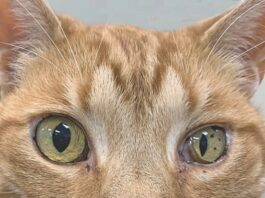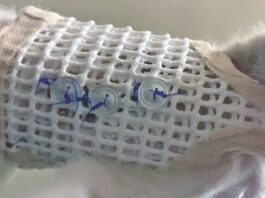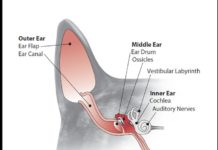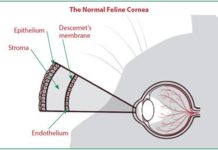Cornell Pursues the Elusive Coronavirus That Triggers FIP
Scientists have known for some time that certain strains of the feline coronavirus can lead to feline infectious peritonitis (FIP), a viral disease that is the leading infectious cause of death in cats under 2 years of age. However, the pathogenesis - the way the usually mild coronavirus develops into often-fatal FIP - remains a mystery.
Evaluating the Results and Their Potential Meaning
These are only a few of the many components evaluated in a complete blood count:
Evaluating a Transdermal Appetite Stimulant for CKD
The drug mirtazapine, used to treat depression in people, has a surprising side effect in pets: It can stimulate appetite and, in some cases, control nausea and vomiting, which are signs of chronic kidney disease (CKD) in cats.
FDA Warns Topical Drug Poses Toxic Risk to Cats
The Food and Drug Administration has issued a warning about pets exposure to a topical non-steroidal anti-inflammatory (NSAID) drug after reports of deaths and illness in cats. Their owners had applied flurbiprofen cream or lotion to their own neck or feet to treat pain.
Is a Clinical Trial Right for Your Cat?
If your cat had a life-threatening disease with no effective treatment, would you enter him in a clinical trial that might result in a helpful drug or other therapy - perhaps even a cure? Clinical studies are essential in moving medicine forward and often rely on the participation of animals with naturally occurring diseases to find answers.
Researchers Pursue a Gene Therapy Cure
Some veterinarians use a newer form of the human hormone erythropoeitin (EPO) called darbepoeitin to treat anemia associated with rental failure. EPO, produced in...
Short Takes: June 2015
Updated guidelines on pain management from the American Animal Hospital Association and the American Association of Feline Practitioners are primarily intended for private practice veterinarians. The guidelines information-packed 18 pages cover the latest research and experts consensus on medications, but cat owners can find practical help, too. Examples: advice for the home environment and a new emphasis on complementary therapy.
Ask Elizabeth: June 2015
I recently adopted a beautiful kitty named Annie, and she has won my heart. Unfortunately after bringing Annie home, I discovered that she had some real neurological issues. She rocks back and forth and falls constantly when moving from room to room. Her veterinarian says that she has idiopathic [undetermined origin] vestibular syndrome. I do not think that she is going to get any better. Can you shed some light on this condition?
How to Handle a Fainting Episode
One minute your cat seems fine. The next hes passed out on the floor. What should you do? Fainting, or clinically speaking, syncope, is the temporary loss of consciousness followed by a spontaneous rapid recovery.Rather than an illness in itself, fainting is a symptom of illness caused by a lack of sufficient flow of oxygenated blood to the brain, says cardiologist Bruce Kornreich, DVM, Ph.D., ACVIM, Associate Director of the Feline Health Center at Cornell. His advice during an episode: Carefully monitor your cat, never put your hand in his mouth, and contact a veterinarian immediately.
The Common Cause of Ear Infections
One common reason for veterinary visits among cats is otitis externa, or inflammation of the external ear canal. Most people believe that that the term otitis externa means an ear infection, but that isnt true. Something has to breech the normal defense mechanism of the ear to trigger the infection, says veterinary dermatologist William H. Miller, Jr., VMD, Medical Director of the Cornell University Hospital for Animals. Once the surface of the ear canal is damaged, bacteria or yeast inside and around the canal can cause an infection. The underlying causes can include tumors, allergies, ticks or fleas, and excessive grooming and ear wax. But by far the most frequent cause in cats, especially kittens, is ear mites.
The Anatomy of the Cornea
The cornea, the clear coating of the eye that admits light, has layers of specialized skin cells, including:
Techniques and Treatments From Stem Cell Therapy to Massage
These are among the treatments that veterinarians increasingly use to improve cats well-being:












